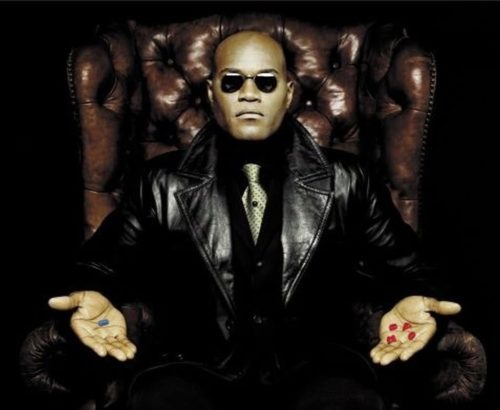
The main characteristic of a religion, according to the bastion of the bluepilled, Wikipedia, is “a cultural system of behaviors and practices, world views, sacred texts, holy places, ethics, and societal organisation that relate humanity to… an order of existence.”
A cynic might say that the true characteristic of a religion, aside from all that, is the fundamentalist belief in something that cannot be proven, and the absolute inability to countenance any possibility that one may be wrong.
As this essay will examine, this description perfectly fits the system of beliefs known as materialism.
The cult of materialism has its own creation mythology, in the form of the Big Bang story, which Wikipedia pompously describes as the “prevailing cosmological model”.
The Big Bang story falls flat on its own face in several regards, the most obvious of which is the failure to account for time before the Big Bang.
Invariably, this mythology is defended by high-ranking members of the cult, who dismiss criticism from any non-materialist on the basis that the criticism isn’t “scientific”, in much the same way that criticisms of Church dogma were dismissed as heresies in the Dark Ages.
In order to be considered “scientific” a person needs a postgraduate degree – and, because a person will only very rarely be motivated to get a postgraduate degree unless they are already “scientific”, the cult filters out those least receptive to its dogma.
Obviously what is meant here by “scientific” is, in fact, “materialist”, but it is a taboo in the cult of materialism to admit that one is a materialist – the pretense of ultimate objectivity must be maintained at all times.
And so materialist dogma is called “scientific” in the hope that people think “rational” when they hear “scientific” and so come to conflate rationality with materialism.
There is nothing rational in a sentence like “Approximately 10−37 seconds into the expansion, a phase transition caused a cosmic inflation, during which the universe grew exponentially during which time density fluctuations that occurred because of the uncertainty principle were amplified into the seeds that would later form the large-scale structure of the universe.”
Such a sentence cannot be made sense of without the guidance of an authority figure, namely a physicist… and in that case you might as well just be listening to a priest on the basis that he is an authority on spirituality.
In the same way that the Sumerian and Babylonian creation myths referenced the early universe as being made of earth, water, air and fire, the Big Bang creation mythology views the early universe as a simple matter of protons, neutrons and electrons – it’s essentially the same story.
Likewise, the waves and particles beloved of quantum physicists are just yin and yang seen through a lens of materialism.
Anyone who has seen beyond, of course, knows that neither story has a superior claim to truth; people will believe in materialism if they trusted their high school teachers over their priests and religionism if it was the other way around.
The second major way in which materialism is like a religion is that it forces its followers to make faith-based assumptions about the nature of reality.
The most common of these assumptions is the assumption that the brain generates consciousness. One will find, even after the most exhaustive research, that there is no hard scientific evidence whatsoever to support this assumption.
The truth – which materialists know they are forbidden from uttering – is that this is an assumption made for the same reasons that we once assumed that the Sun rotated around the Earth: because it looks like it.
People with severe brain damage tend to die, and because materialists have already made the assumption that the brain generates consciousness, it follows logically that significant damage to the brain will impair its ability to generate consciousness, and so the consciousness that was previously present no longer is.
A moment’s thought exposes this line of logic as the utter bullshit it is.
For one thing, there is no evidence that any given person is conscious anyway, even before their brain is damaged. It is simply believed as an article of faith on the basis that they have a brain (a brain being both sufficient and necessary for consciousness in materialist dogmatism).
This is clearly a circular argument.
More specifically, scientific thought is very clear regarding the principle that physiological adaptations have to have some kind of selective advantage in order to evolve. God did not create the world and the creatures in it out of a whim; they evolved in their struggle to adapt to an ever-changing set of environmental conditions, the laws of which are mostly understood.
All well and good, but this cannot account for consciousness.
There is no selective advantage to being conscious, in and of itself. There are probably selective advantages to all other mental or psychological phenomena, but there is no advantage at all in being conscious of the operation of these phenomena.
All of the supposed benefits of consciousness suggested by materialists as reasons for why it might have evolved do not even require consciousness, e.g. an increased capacity to calculate or to think ahead, to remember weather patterns, to tell stories or to detect falsehoods.
For a computer can calculate anything that a human mind can calculate, and we do not generally make the assumption that a computer is conscious. It is only because of materialist dogma that one assumes consciousness exists where one has no evidence for it.
In short, materialism is a religion because its followers are not willing to reason in good faith. Were they willing to do so they would not be able to defend baseless positions such as the idea that the brain generates consciousness.



